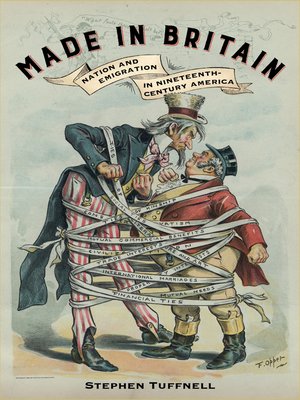
Sign up to save your library
With an OverDrive account, you can save your favorite libraries for at-a-glance information about availability. Find out more about OverDrive accounts.
Find this title in Libby, the library reading app by OverDrive.



Search for a digital library with this title
Title found at these libraries:
| Library Name | Distance |
|---|---|
| Loading... |
The United States was made in Britain. For over a hundred years following independence, a diverse and lively crowd of emigrant Americans left the United States for Britain. From Liverpool and London, they produced Atlantic capitalism and managed transfers of goods, culture, and capital that were integral to US nation-building. In British social clubs, emigrants forged relationships with elite Britons that were essential not only to tranquil transatlantic connections, but also to fighting southern slavery. As the United States descended into Civil War, emigrant Americans decisively shaped the Atlantic-wide battle for public opinion. Equally revered as informal ambassadors and feared as anti-republican contagions, these emigrants raised troubling questions about the relationship between nationhood, nationality, and foreign connection.
Blending the histories of foreign relations, capitalism, nation-formation, and transnational connection, Stephen Tuffnell compellingly demonstrates that the United States' struggle toward independent nationhood was entangled at every step with the world's most powerful empire of the time. With deep research and vivid detail, Made in Britain uncovers this hidden story and presents a bold new perspective on nineteenth-century trans-Atlantic relations.
Blending the histories of foreign relations, capitalism, nation-formation, and transnational connection, Stephen Tuffnell compellingly demonstrates that the United States' struggle toward independent nationhood was entangled at every step with the world's most powerful empire of the time. With deep research and vivid detail, Made in Britain uncovers this hidden story and presents a bold new perspective on nineteenth-century trans-Atlantic relations.







